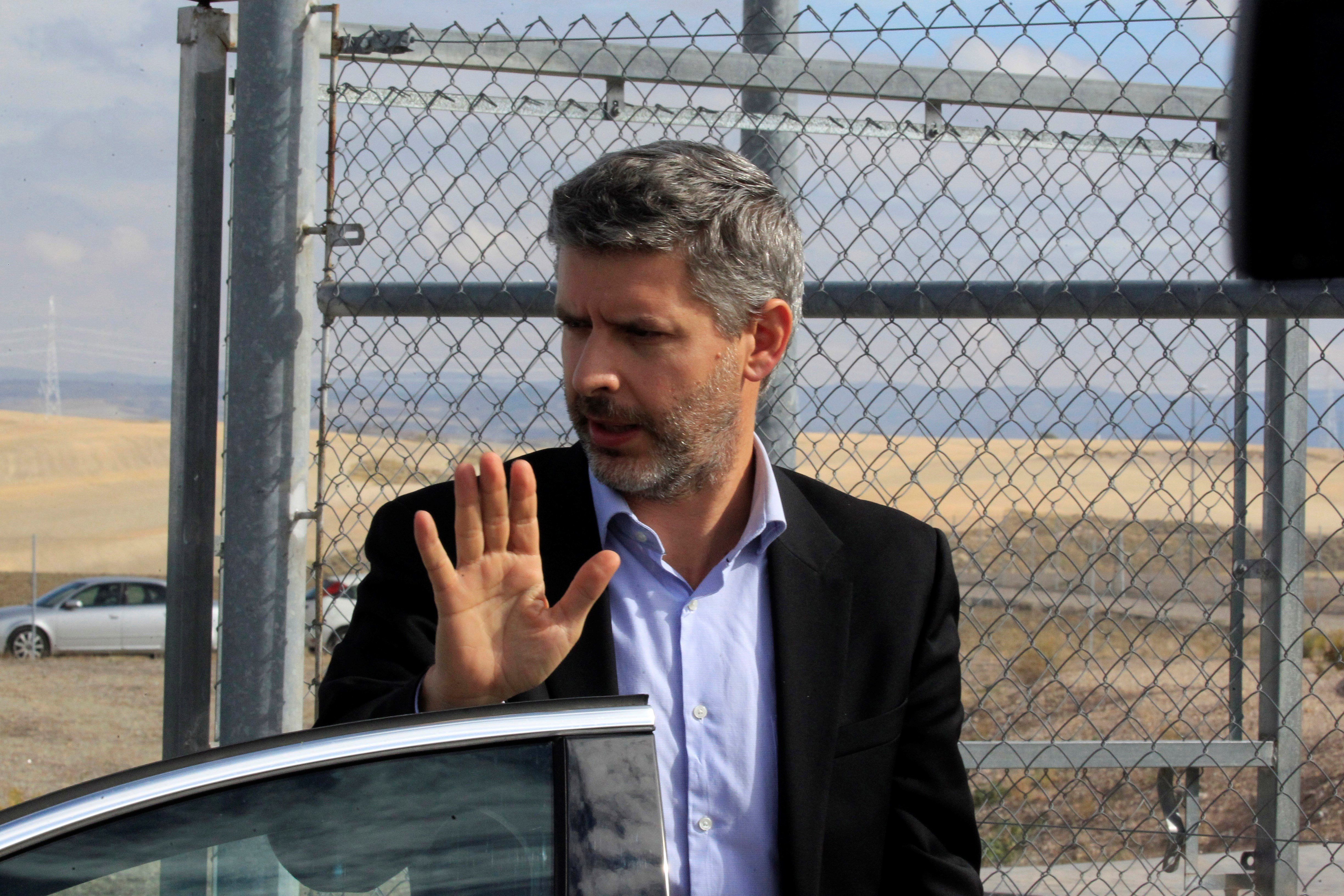The lawyer leading the defence of Catalan vice-president Oriol Junqueras and his fellow ministers from ERC (Catalan Republican Left), Andreu Van den Eynde, has doubts that the ministers were transported from the National Audience courthouse to the Estremera prison yesterday following protocols.
In statements to El Nacional, he questions "the way they were contained mechanically". That raises the possibility that the ministers were hand-cuffed within the van, or without seat belts, which could have caused hits and bruises, in vehicles that left the courts at full-speed for the 100km journey.
Van den Eynde wants to wait to see how everything develops before deciding whether he will present a complaint or not for any mistreatment. This includes waiting for the reports on the medical that were conducted yesterday shortly after they arrived in prison.
The Spanish prison service didn't want to comment, saying only that "they're private details of the prisoners" and that, if any injuries are found in their medical checks, "they will be recorded in their files".
Spain's Interior Ministry didn't want to confirm either whether the vice-president and his fellow ministers were hand-cuffed in the vans. They say the details of the transfer will be clarified at some point in the future.
They're fine
The transfer wasn't direct from the National Audience to Estremera prison. El Nacional has learnt that the ministers first arrived at the different prisons they were first assigned to by the Interior Ministry. A last-minute agreement, however, between judge Carmen Lamela and the defence councils, however, led to them being regrouped in Estremera.
The ministers themselves were shocked by the initial decision to send them to different prisons, which changed once they saw they were all being taken to the same one. "Now they're much more calm," said Junqueras' lawyer. "The fact they're together means the world," he added.
The defence's strategy
Andreu Van den Eynde tweeted late in the evening after his clients were taken to prison.
Me'n vaig a dormir però acabo de decidir que els trauré d'allà, sigui com sigui.
— Andreu Van den Eynde (@eyndePenal) 2 novembre 2017
Translation: I'm going to sleep but I've just decided that I'll get them out of there, however.
Their strategy, as far as can be revealed, is to claim it's not within the competences of the National Audience to investigate the crimes they are accused of, which include sedition.
"The National Audience is a black hole", said Van den Eynde about the court created to be tough on the most dangerous criminals, the court that has dealt with terrorism in Spain.
The situation of the speaker of the Catalan Parliament, Carme Forcadell, and other members of the chamber's Board is different. They haven't lost their parliamentary privilege and the Supreme Court, where their cases are filed, offers more guarantees.

